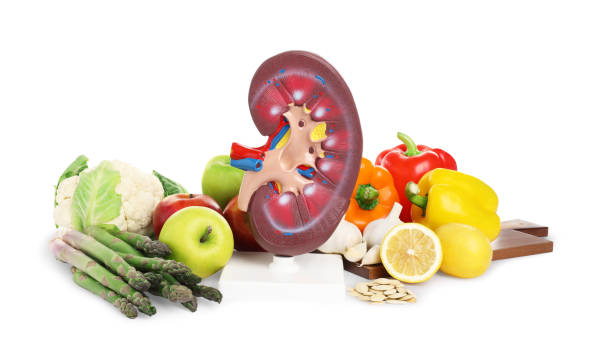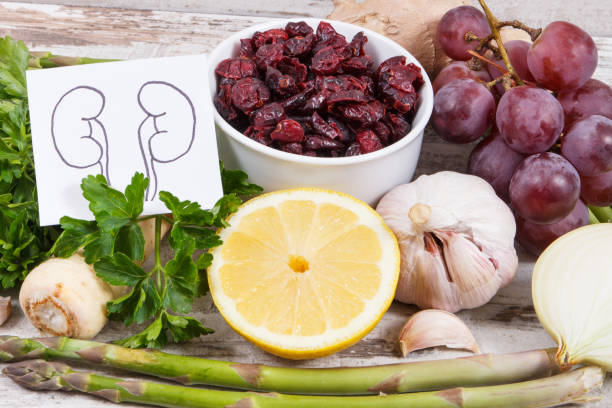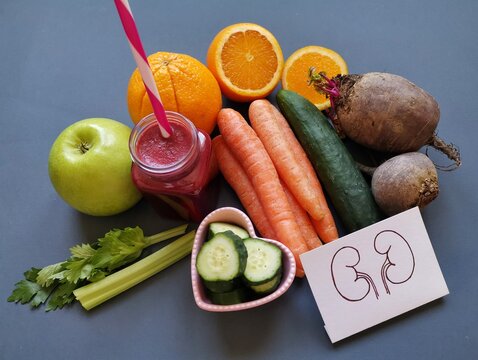When kidneys can no longer filter waste products effectively, dialysis becomes a lifesaving treatment. However, dialysis alone cannot remove all the toxins or balance nutrients in the body. That’s where the dialysis diet comes in a specialized eating plan designed to support kidney function, maintain overall health, and enhance the effectiveness of dialysis treatments.
This article will explain everything you need to know about the dialysis diet, including what to eat, what to avoid, and practical meal planning tips.
Why a Dialysis Diet is Important:
Dialysis removes waste and extra fluid from the blood, but it is not as efficient as healthy kidneys. Without a proper diet, harmful substances can accumulate in the body.
A dialysis diet helps by:
- Controlling fluid buildup (reduces swelling, high blood pressure, and breathing difficulties)
- Maintaining balanced electrolytes like potassium, phosphorus, and sodium
- Preventing bone disease by regulating calcium and phosphorus
- Providing enough protein for energy, muscle strength, and healing
- Supporting overall heart and vascular health
Key Nutritional Guidelines for Dialysis Patients:
1. Protein:
- Why it matters: Dialysis removes some protein from the body, and without enough, patients may feel weak or experience muscle loss.
- Recommendation: High-quality protein should be included in every meal.
- Good choices: Eggs, chicken, fish, lean beef, turkey.
2. Sodium:
- Why it matters: Too much sodium causes fluid retention, high blood pressure, and strain on the heart.
- Recommendation: Limit sodium to around 2,000 mg/day (as advised by a doctor).
- Avoid: Processed foods, canned soups, salted snacks, pickles, fast food.
- Better options: Fresh, unseasoned meats, herbs, lemon juice, garlic for flavor.
3. Potassium:
- Why it matters: Kidneys regulate potassium, but in dialysis patients, high potassium (hyperkalemia) can cause irregular heartbeat or cardiac arrest.
- Recommendation: Stay within doctor-recommended potassium limits.
- High-potassium foods to avoid: Bananas, oranges, potatoes, tomatoes, spinach, nuts.
- Low-potassium alternatives: Apples, berries, cabbage, cucumbers, white rice, grapes.
4. Phosphorus:
- Why it matters: Excess phosphorus weakens bones and causes calcium deposits in blood vessels.
- Recommendation: Keep phosphorus intake 800–1,000 mg/day.
- Foods to limit: Cheese, milk, yogurt, beans, lentils, cola drinks, nuts, whole grains.
- Safer options: Rice milk (unenriched), non-dairy creamers, fresh fruits and vegetables, white bread.
5. Fluids:
- Why it matters: Too much fluid causes swelling, high blood pressure, shortness of breath, and heart strain.
- Recommendation: Fluid allowance is usually 500–1,000 ml plus urine output per day, depending on the patient’s condition.
- Tips to manage thirst:
Suck on ice chips
Chew sugar-free gum
Rinse your mouth with water, but don’t swallow
Choose cold fruits like grapes or apples
6. Vitamins & Minerals:
Dialysis patients often need supplements because some vitamins are lost during treatment. Commonly prescribed:
- Vitamin D (supports bone health)
- Iron (for red blood cell production)
- B-complex & Vitamin C (to replace losses during dialysis)
Supplements should only be taken under medical supervision.
Foods to Avoid on a Dialysis Diet:
- Processed meats (sausages, hot dogs, deli meats)
- Fast food and frozen meals
- Dark sodas (contain phosphorus additives)
- High-salt condiments (soy sauce, ketchup, pickles)
- Nuts, seeds, and chocolate
- Dairy products in large amounts
Recommended Foods for Dialysis Patients:
- Protein: Egg whites, chicken, turkey, lean beef, fish
- Carbohydrates: White bread, rice, pasta, unsalted crackers
- Fruits: Apples, grapes, strawberries, pineapple, watermelon (in limited amounts)
- Vegetables: Cabbage, cauliflower, lettuce, cucumbers, green beans
- Drinks: Water (within fluid limits), clear sodas, certain herbal teas (without potassium additives)
Sample Dialysis Diet Meal Plan:
Breakfast:
- Scrambled egg whites
- White toast with unsalted butter
- Apple slices
- Herbal tea
Lunch:
- Grilled chicken breast
- White rice
- Steamed green beans
- Grapes
Snack:
Unsalted popcorn or apple wedges
Dinner:
- Baked fish (cod or tilapia)
- Mashed potatoes (small serving, double-boiled to reduce potassium)
- Steamed cabbage
- Mixed fruit salad (low-potassium fruits)
Tips for Managing a Dialysis Diet:
- Read labels carefully – watch for hidden sodium and phosphate additives.
- Double boil vegetables – cooking potatoes or root vegetables in two rounds of water lowers potassium.
- Limit restaurant food – usually high in salt and phosphorus.
- Work with a dietitian – each patient’s needs are unique, depending on lab results and dialysis type.
- Plan meals in advance – helps avoid unplanned high-sodium or high-potassium foods.
Risks of Not Following a Dialysis Diet:
Ignoring dietary guidelines can cause:
- Fluid overload → swelling, heart strain, high blood pressure
- Hyperkalemia → irregular heartbeat, heart failure
- Bone disease → weak bones, fractures, calcification
- Fatigue & malnutrition → due to poor protein intake
- Increased hospitalizations
Conclusion:
A dialysis diet is not just about restrictions—it is a carefully designed nutrition plan to improve health, energy, and quality of life. By balancing protein, sodium, potassium, phosphorus, and fluids, patients can feel better and avoid serious complications. With guidance from a healthcare team and small, consistent changes, living well on dialysis is possible.
FAQ:
Q. Can dialysis patients eat dairy products?
A. Yes, but in limited amounts. Dairy is high in phosphorus and potassium, so portion control is important.
Q. Is coffee allowed on a dialysis diet?
A. Yes, in moderation. Black coffee is low in phosphorus and potassium, but avoid flavored creamers with phosphate additives.
Q. How can dialysis patients manage thirst?
A. Use ice chips, sugar-free gum, and small sips of cold water. Limit salty foods that increase thirst.
Q. Are fruits safe for dialysis patients?
A. Yes, but choose low-potassium fruits like apples, grapes, and berries. Bananas, oranges, and melons should be avoided.
Q. Do dialysis patients need supplements?
A. Often yes, especially vitamin D, iron, and B vitamins, but only under a doctor’s supervision.


